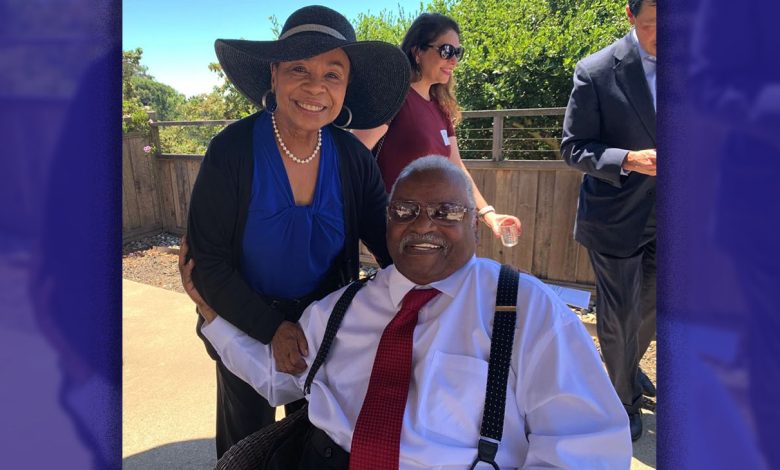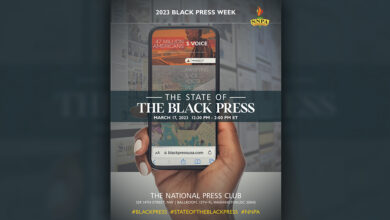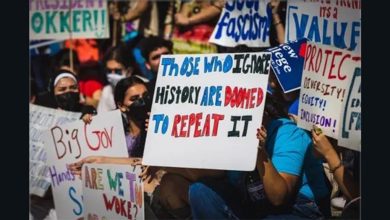On the Road to the Senate, Barbara Lee Celebrates Her Birthday with Sandré Swanson

How the Mexican Mafia, Nuestra Familia, Black Guerrilla Family (BGF), and Aryan Brotherhood’s agreement to end hostilities against each other in prison could also be applied on the streets with gangs.
By Richard Johnson
On July 7 and 8, the California Families Against Solitary Confinement (CFASC) held a symposium at California State University at Fullerton to celebrate the 10th anniversary of the historic agreement to end hostilities among inmates and to mark the three hunger strikes that occurred at the Pelican Bay State Prison from 2011-2012.
This symposium provided the opportunity for the families, victims, supporters, and for all those who made the hunger strike and agreement to cease hostilities a success. Former inmates recounted experiences of solitary confinement. The lawyers, therapists, psychologists, and support personnel spoke about how the strike and the agreement to end hostilities helped to make a positive paradigm change for the inmates and their families.
As a panelist, I spoke of how I was victimized by being held in solitary confinement for nearly 20 years because I was labeled a “gang member,” and referred to as “the worst of the worst.”
But I emphatically pointed out that many of those who had suffered and endured, as I did, are now out in society, making a change for the betterment of society and their families. They are proving that, when given a chance, they can make positive contributions.
I was even impressed by the magnitude of success that so many of my formerly incarcerated colleagues have achieved. There are so many with advanced college degrees and PhDs while others are attending universities such as Columbia, UC Berkeley, UC Fullerton, University of Southern California, and many others. If given the chance, both women and men can ascend out of hopelessness and despair to become better versions of themselves.
Jules Lobel, a professor of law at the University of Pittsburgh, was the main speaker at the symposium. He was given the honor to give the keynote address because he was the lead attorney for the hunger strikers as well as the main litigator before the federal courts. Lobel has written several books and numerous legal articles for Harvard, Cornell, Oxford and many other institutions of higher learning. (https://ccrjustice.org/node/4464)
I am grateful to all participants and especially to Dolores Canalis who organized this event with her husband Jack Morris. I want to thank unsung heroes and sheroes that we owe a debt of gratitude for their support, volunteerism and prayers.
They include; Danny Murillo, Azadeh Zohrabi of the Berkeley underground scholars; Angelica Camacho, Ph.D.; professor at San Francisco State University and a member of the California Families Against Solitary Confinement and coordinator for the Mandela Campaign; Jamala Taylor of the Inside Garden Program; Penny Schoner of Prison Activist Resource Center; panelist Marie Levin representing her brother Ronnie Dewberry (Sitawa Nantambu Jamaa) who was one of the four main people who negotiated the hunger strike as well as the litigations; my former attorney Dan Siegel and his wife Ann Weills; Post News Group and Jonathan ‘Fitness’ Jones an ambassador from the African American Sports and Entertainment Group (AASEG).
What must be mentioned is that at the onset of the hunger strike in 2011 the various formations weren’t exactly getting along, thus the first hurdle to overcome in petitioning the court for isolation relief was to open a dialogue between the formations, such as Mexican Mafia, Nuestra Familia, Black Guerrilla Family (BGF), and Aryan Brotherhood.
This took time and energy because of all the previously held positions of discord between them. As I sat there on that stage among old rivals, it gave me great pleasure to see the fruits of our labor manifested at that symposium. Who in the past could conceive such a step forward out of the rigors of prison politics?
I must mention one guy who was my next-door neighbor and a member of the Aryan Brotherhood at one time in Pelican Bay Security Housing Unit (SHU); his name was Eddie Burnett. We sat on that stage, side-by-side, participating in panel discussions, this in itself demonstrates the beauty of respect, cooperation, remarkable reconciliation, and of course persistence and understanding. Nothing is perfect yet everything is “solutionable.” The symposium clearly highlighted that fact. Where do we go from here now that a leap forward has been taken? Life can be made simple, either you win, or you don’t lose.
This symposium opens the door for us to bring an end to hostilities on the streets. If it can work in prison, it can work on the streets too.
We as a society have an obligation to at least try to make this world a better place. I feel the responsibility rests on our shoulders to do all that is necessary to make a change for the better.
Our non-profit organization, Formerly Incarcerated Giving Back (FIGB) is currently engaged in Transitional Reentry Housing Services with the Diplomat’s Center Inc. and providing mentorship, gang intervention, community safety, trauma-informed care, voter registration, and providing housing for the unhoused in collaboration with Dr. Maritony’s Life Impact for Humanity (LIFH).
FIGB, in partnership with Partners in Careers (PIC), will be advocating for and developing living-wage jobs and recreational spaces for development and technology training.
Special thanks to POST Newsgroup Publisher Paul Cobb and owner Gay Plair Cobb for being one of the first to give a substantial donation to the Formerly Incarcerated Giving Back (FIGB). And if you have been touched and/or moved to also contribute your time, resources, and/or donations to our great community efforts feel free to contact us at 1-888-711-8351 ext.1 or email us at formerlyinc.gb@gmail.com





